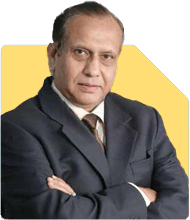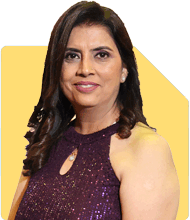
Dear Sir, I am a medico currently working overseas. My present income is relatively high, but I expect my earnings to reduce over the next 1–2 years due to career transitions and further examinations. Also, I may be starting a family of my own in the near future.
I have recently started investing and would like your opinion on whether my overall strategy is sound and how I should prepare for lower-income years ahead. Current situation (approximate):
Monthly investment capacity: ₹3 lakh (at present)
Expected future investment capacity: ₹1-1.25 lakh per month
Existing expenditure: No debts at present, ~approx 1 lakh per month to support parents, 1.5 L per year in their insurance, 50-55k per month on rent, food, and miscellaneous
Emergency fund: being built separately, started SBI life during my postgrad years and invested 7.5 L over 5 years, and expected to mature by 2028.
Current investment approach:
Equity-oriented mutual funds via SIP and lump sum
Allocation across flexi-cap, multi-cap, large & mid-cap, mid-cap, small-cap funds
Small allocation to liquid funds for short-term needs
Investment horizon: long term (10+ years) Fund Allocation % Share
Parag Parikh Flexi Cap ₹75,000 25%
Kotak Multicap Fund ₹60,000 20%
Kotak Large & Mid Cap ₹60,000 20%
Axis Midcap ₹45,000 15%
Axis Small Cap ₹30,000 10%
ICICI Liquid Fund ₹30,000 10%
My primary goals are:
Long-term wealth creation
Financial stability during periods of reduced income
Maintaining flexibility for career-related expenses and exams
I would be grateful for your views on:
Whether this equity-heavy approach is appropriate given future income uncertainty
How I should gradually adjust asset allocation as income reduces
Any mistakes you commonly see investors like me make at this stage
Thank you for your time and guidance.
Ans: Appreciate the clarity with which you have shared your income pattern, responsibilities, and future plans. Starting early, investing seriously, and thinking ahead about income reduction already puts you in a strong position.
» Overall View of Your Current Strategy
– Your present high savings rate is a big advantage and should be used wisely
– Long-term orientation of more than 10 years suits equity-oriented investing
– Supporting parents, planning exams, and future family needs show mature financial thinking
– Your strategy is growth-focused, but it needs better protection for the income transition phase
» Suitability of an Equity-Heavy Approach
– High equity exposure is suitable when income is strong and stable
– Future income uncertainty means volatility tolerance may reduce emotionally, even if risk capacity is high
– Equity-heavy portfolios can show sharp short-term falls, which may be stressful during exam or career pressure periods
– The approach is directionally right, but timing and balance need fine-tuning
» Managing the Next 1–2 Years of Income Reduction
– Use the current high-income phase to build strong safety layers
– Increase allocation to low-volatility and short-term holding options meant only for stability
– Create a clear separation between:
Long-term wealth money (do not touch)
Career transition and exam-related money (capital protection focus)
– As income reduces, SIP amounts can be lowered without stopping investments fully
» Asset Allocation Adjustments Over Time
– Gradually reduce exposure to higher volatility segments as income visibility reduces
– Maintain core equity exposure for long-term goals, but avoid over-dependence on aggressive segments
– Avoid frequent switching based on short-term market movement
– Asset allocation discipline matters more than chasing higher returns
» Liquidity and Flexibility Planning
– Ensure emergency and opportunity money is fully ready before income reduces
– Liquid and low-risk options should cover at least all non-negotiable expenses
– This gives confidence to stay invested in equity during market corrections
– Flexibility reduces the risk of forced withdrawals at the wrong time
» Insurance and Protection Review
– Review the existing investment-cum-insurance policy started during postgraduation
– Such policies are usually low on returns and high on cost
– If surrender conditions are reasonable, consider exiting and redirecting money into more efficient options
– Keep pure insurance and investments separate for better clarity and control
» Common Mistakes Seen at This Stage
– Investing aggressively without enough liquidity buffer
– Reducing investments fully instead of adjusting amounts during income dips
– Overexposure to similar equity styles leading to hidden concentration risk
– Ignoring future life changes like marriage, children, and relocation costs
» Tax and Exit Awareness
– Equity fund exits within one year attract 20% tax on gains
– Long-term equity gains above Rs 1.25 lakh are taxed at 12.5%
– This makes planned withdrawals and phased rebalancing more efficient than sudden exits
» Finally
– Your financial foundation is strong and well thought out
– With better balance between growth and stability, you can manage income changes smoothly
– Focus on structure, liquidity, and discipline rather than only return numbers
– A periodic review with a Certified Financial Planner will help you stay aligned as life evolves
Best Regards,
K. Ramalingam, MBA, CFP,
Chief Financial Planner,
www.holisticinvestment.in
https://www.youtube.com/@HolisticInvestment

























